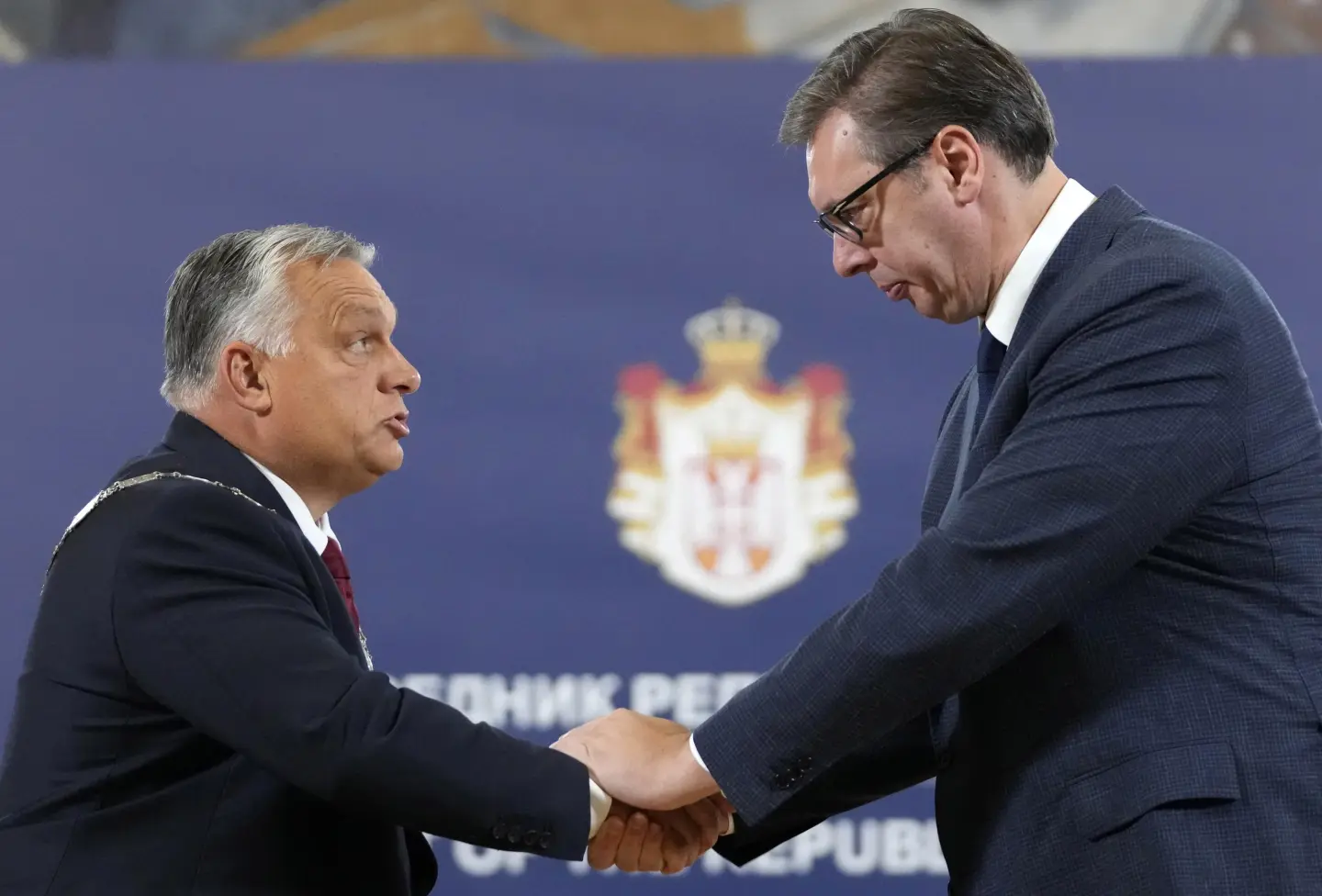
Recent statements by Serbian President Aleksandar Vucic and Hungarian Prime Minister Viktor Orban suggesting the imminent possibility of a third world war have sparked global concern.
Vucic warned of a significant conflict within three to four months, while Orban highlighted the challenging period leading up to the U.S. elections in November, emphasizing the need to "survive until then."
Additionally, Russian President Vladimir Putin's recent agreement with North Korea for mutual assistance in case of an attack and his move to establish new partnerships with Vietnam have fueled speculation about the potential for global conflict.
Experts from the Foreign Policy Institute and the Geopolitical Forecast Institute provided their insights on these developments to Türkiye Today.
Professor Huseyin Bagci, head of the Foreign Policy Institute, pointed to the significant global arms race, noting that "every country's concerns and apprehensions are increasing." He referenced historian Yuval Noah Harari’s observation that every century since the 16th century has seen nations or empires engage in substantial arms buildups.
"Today, we are experiencing a similar process, leading to expectations of a major war," Bagci remarked. He highlighted that global defense expenditure, interpreted as offensive spending, stands at a significant 18%.
Bagci emphasized NATO's ongoing prominence, maintaining its status as the largest military alliance in history, while Russia attempts to unite global southern countries against NATO, unable to match NATO's military capabilities alone. Consequently, Russia seeks to form a "global Warsaw Pact" and diminish U.S. influence in the Far East.
Bagci noted that much hinges on the upcoming U.S. elections.
"If President (Joe) Biden remains in office, the Ukraine-Russia conflict is likely to escalate. Conversely, if (former President) Donald Trump wins, the conflict may not intensify," he explained.
NATO Secretary General Jens Stoltenberg has indicated that China must face the consequences if it continues to support Russia’s war in Ukraine, implying economic sanctions. This suggests NATO's shift toward a more global structure, aiming to bring countries like South Korea and Japan under its security umbrella. While Ukraine may not become a NATO member soon, negotiations will begin.
BRICS nations, especially China, will continue their cooperation with Russia. The primary global conflict will be between China and the U.S., with a specific focus on Europe and Russia. Bagci predicted that a defined cease-fire would eventually occur in Ukraine, with Russia advancing as far as it can and Ukraine defending its territory as best as possible.
Guray Alpar, head of the Geopolitical Forecast Institute, asserted that "the world is already at war." Many states are providing equipment and soldiers to the Ukraine-Russia conflict, creating a scenario where the situation could escalate further, potentially spreading to Europe.
Alpar warned that if Russia feels cornered, it might not hesitate to use its missiles, which could reach both England and Paris. He stressed that the ongoing preparations by both the West and Russia indicate a growing risk of war. He urged for measures to mitigate this risk, cautioning that failure to do so could lead to a broader conflict causing significant harm to Europe and surrounding regions. The outcome of the U.S. elections will influence this situation, just as the situation will impact the election results.
The experts emphasized the critical need for diplomatic efforts and strategic measures to reduce the likelihood of a global conflict, warning that current preparations and rhetoric are heightening the risk of World War III.